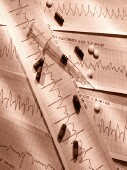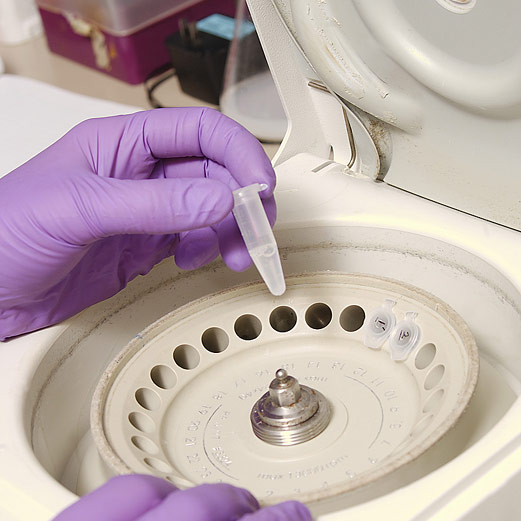
TUESDAY, April 10 (HealthDay News) — Minor changes in the results of a commonly used heart test — an electrocardiogram, or EKG — translate into a 35 percent increased risk of heart events, such as heart attacks, hospitalizations for chest pain or the need for heart surgery, in people over 70, according to new research.
For people with major abnormalities in their EKG, the risk of having a heart event is even higher, compared to people with normal tests.
“We analyzed data from the Health, Aging and Body Composition Study. More than 3,000 patients had an electrocardiogram done at baseline, but we only included the people who didn’t have a previous history of coronary heart disease or cardiovascular disease, so no heart attacks or strokes,” said lead study author Dr. Reto Auer, a research fellow in the department of epidemiology and biostatistics at the University of California, San Francisco.
“We found that people who had minor or major changes in their electrocardiogram had a greater risk of heart events,” Auer said. “And, when we adjusted the data for commonly known risk factors — smoking, cholesterol, body mass and high blood pressure — we still found an association between minor or major EKG changes and heart events.”
Results of the study are published in the April 11 issue of the Journal of the American Medical Association.
An EKG is a painless and noninvasive test that records each heartbeat onto a piece of paper. To conduct the test, clinicians attach numerous wires to your chest and legs to capture each heartbeat.
The test is commonly included as part of a routine physical, though the widespread use of this test in people without any cardiac symptoms has recently come into question. While it may be noninvasive, it’s not without risk. People who have abnormal test results are often referred to specialists and for more tests, which may be invasive. In addition, if the results of the EKG suggest an increased risk, someone might be placed on a new medication to reduce their risk.
“The American College of Cardiology currently recommends against routine screening in asymptomatic individuals unless there are risk factors,” said Dr. David Friedman, chief of heart failure services at North Shore-LIJ Health System’s Plainview Hospital, in Plainview, N.Y.
The U.S. Preventive Services Task Force and the American Heart Association also do not recommend routine EKG screening in people without symptoms or risk factors, according to an accompanying editorial in the same issue of the journal.
“Just because its use is widespread and it’s cheap doesn’t mean it should necessarily be given to everyone. While it might seem to make sense, where does it stop? Why just get an EKG? Why not an echocardiogram or a cardiac stress test, too? All of these tests have to be used rationally and cost-effectively. This is still a gray area,” Friedman said.
The current study is a first step in assessing how electrocardiograms might effectively be used in an older population, the researchers suggested.
From the larger study, the investigators analyzed data on 2,192 people who had no history of heart disease or stroke, but had undergone an EKG at the start of the study.
All of the study volunteers were between the ages of 70 and 79. Fifty-five percent of study participants were women and 59 percent were white. The study included an average eight years of follow-up information.
The researchers found that people who had minor abnormalities in their EKG at the start of the study were 35 percent more likely to experience a heart event than those without any abnormalities. Those with major EKG abnormalities had a 51 percent greater risk of having a heart event.
Auer said even with this study’s findings, it’s too soon to recommend routine screening with EKG. “Prediction is not prevention,” he said.
An additional issue that both doctors mentioned is that the EKG test is only as good as the person who’s reading the test. Major abnormalities are generally easy to see, but minor ones aren’t always as easy to interpret, Auer and Friedman said.
“I see minor abnormalities all the time, and variable changes in the same patient from year to year. There are some things we expect that are normal variants,” Friedman said.
Until the experts sort out the best way to use EKG to help them predict someone’s risk of a heart attack, Auer said that it’s important to talk to your doctor about your heart disease risk factors, such as high blood pressure, high cholesterol and smoking. Making changes in these risk factors is already known to reduce the risk of heart disease. It isn’t yet known if changing the results of your EKG will help lower your heart disease risk, he noted.
More information
Learn more about the electrocardiogram test from the U.S. National Heart, Lung, and Blood Institute.

